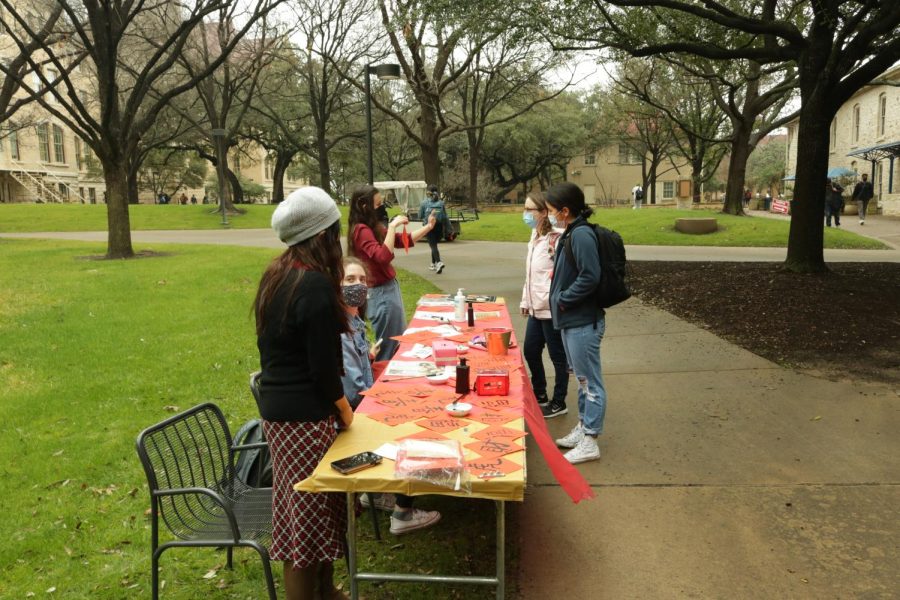Students learn about, celebrate Chinese New Year on campus
Students visit Chinese Club’s table on Ragsdale Lawn to celebrate and learn about Chinese New Year on Feb. 1. Members encouraged students to participate in calligraphy and creating couplet.
The Chinese Club set up a colorful table outside of Ragsdale Hall on Tuesday, Feb. 1 to celebrate Chinese New Year, which marked the beginning of the year of the tiger.
At the table, Chinese Club members were engaged in thoughtful calligraphy, inking lucky characters onto red couplets accented with gold. Each club member had their own distinct style, and they even invited others to ink their own character out on a couplet, which is a piece of paper that usually displays poems related to welcoming in the spring season.
Hanging the character-inked couplet upside down on your door is meant to bring luck. It’s a tradition that is both meant to welcome good fortune and ward away the spirit of the mythical beast nián shòu, who Chinese Club members told me arrives around Chinese New Year to eat cattle and people.
According to Chinese mythology, nián shòu is afraid of the color red, which is why new year’s celebrations in China incorporate the color. Another thing that nián shòu is afraid of is loud noises, which is why it is a tradition to light firecrackers during the new year.
Also at the table were other symbols of luck, like small red packets (the luckiest color) with a lucky number of coins in them. The members at the table explained that it is Chinese tradition to hand the envelopes to family members with two hands, which is a gesture of respect.
Global studies major Marisa Davis was one of the members of Chinese Club at the table. Before the pandemic she was set to do an internship in Singapore because of her interest in East Asian political connections. Even though the internship was canceled, she decided to put her best foot forward to learn Chinese from home and enrolled in online classes.
“Through the language, I get to learn about the culture,” Davis said.
Chinese language and culture is important to Davis, and her passion was shared among the other Chinese Club members at the table, some of whom grew up speaking Spanish as one of their primary languages before making their way to learning Chinese. But with St. Edwards’ Chinese courses limited for now, the club’s members are sharing their passionate interest in Chinese through their time in the club.







